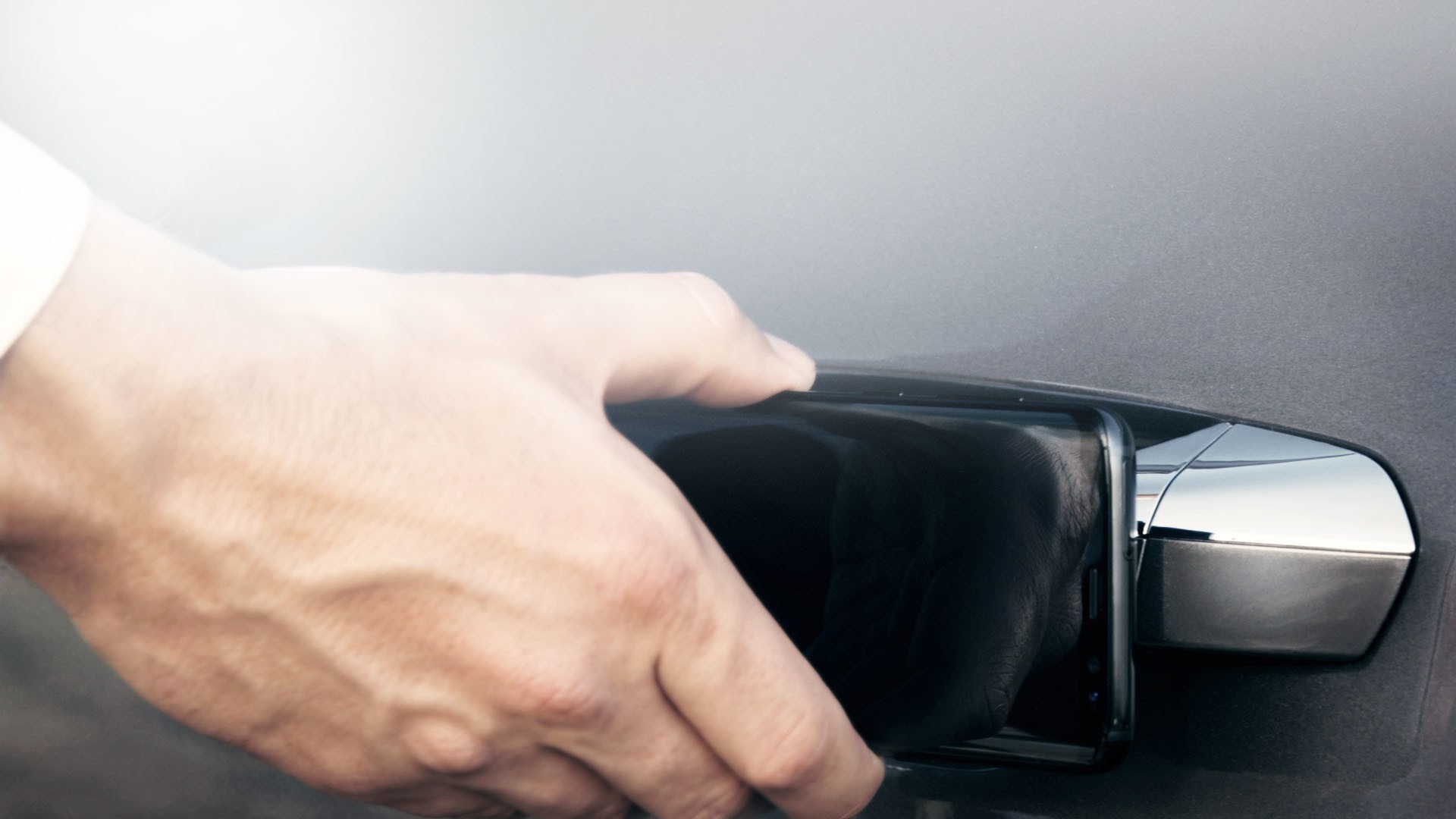A handful of new cars let drivers leave their keys at home but the technology could be going mainstream as a number of tech firms and automakers have joined forces to make digital keys commonplace.
The partnership is already bearing fruit as the Car Connectivity Consortium has released the Digital Key 1.0 specification. As the group notes, the specification was developed to create a “robust ecosystem around interoperable digital key use cases, including allowing drivers to lock, unlock, start the engine, and share access to their car – all from their smart devices.”
The Digital Key specification relies on Near Field Communication (NFC) technology and would enable users to lock and unlock their car with a smartphone. The group says that by “leveraging NFC distance bounding and a direct link to the secure element of the device,” they can assure the technology will have the highest levels of state-of-the-art security.
While this is just the first step, the Car Connectivity Consortium says there has been “extensive interest” from automakers, smartphone manufacturers and suppliers. As a result, they’re already working on a new specification with tech giants such as Apple, LG, Panasonic, Samsung and Qualcomm. They are being joined by several automakers including Audi, BMW, General Motors, Hyundai and Volkswagen.
If everything goes according to plan, Digital Key 2.0 will be ready early next year. Thanks to the involvement of numerous companies, it should allow users to access multiple vehicles with an assortment of smartphones. Furthermore, the widespread use should help to drive costs down.
In a statement, BMW’s Alexander Maier said “BMW sees high value in a standardized digital key ecosystem driven by the CCC.” He added, ”Leveraging all benefits of Release 2.0 will enable a scalable solution, interoperable with all smart devices and vehicles delivering a superior user experience to our customers.”
While it could be awhile before smartphones replace car keys, the group said its 70+ members represent more than 70 percent of the global automotive market and more than 60 percent of the global smartphone market.






